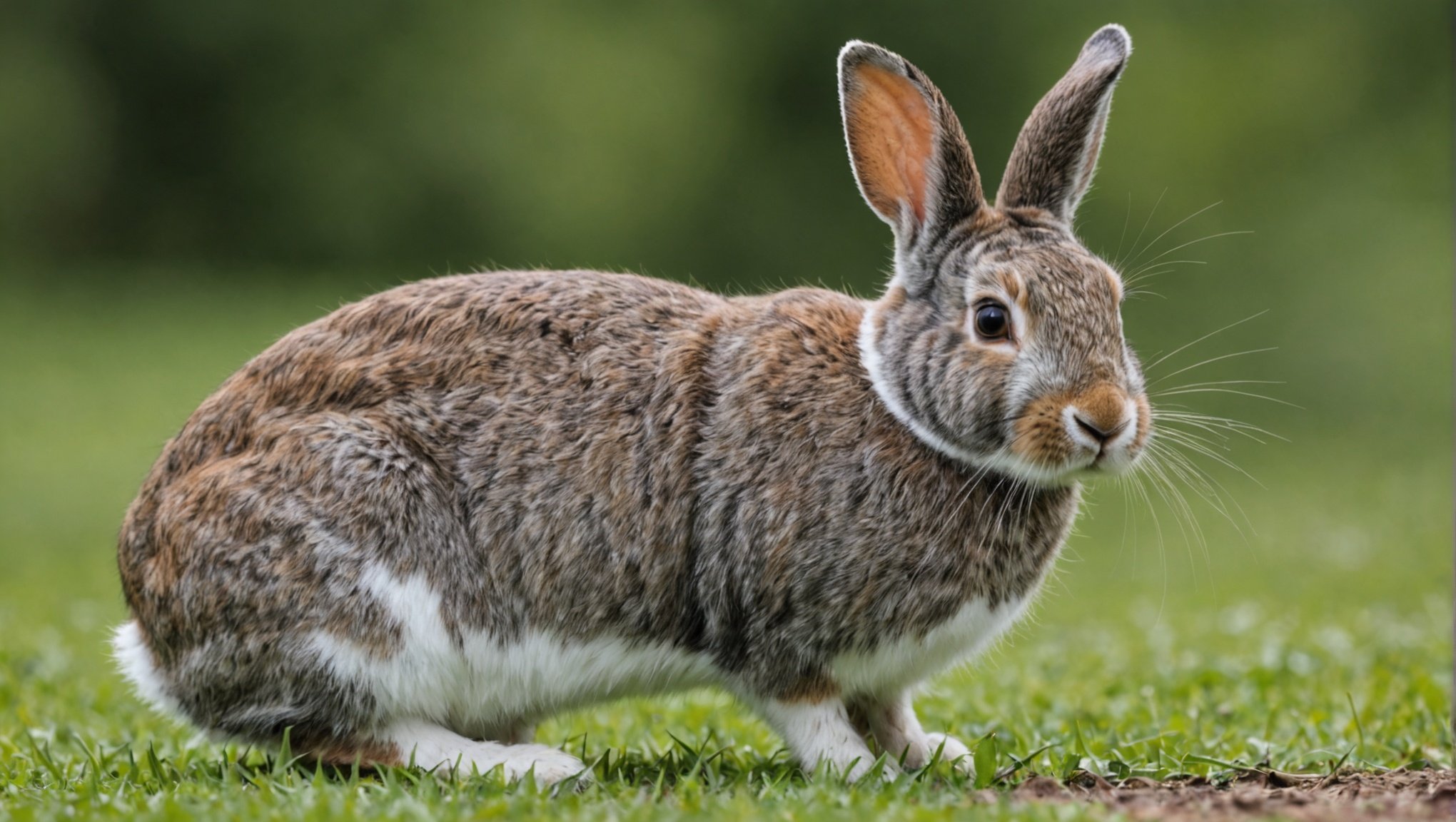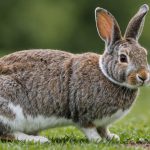Domestic rabbits are popular pets across the globe, loved for their playful antics, silky coats, and charming personalities. As pet owners, you would naturally be concerned about providing your fluffy companions with a diet that is both healthy and satisfying. One question that often arises is whether a plant-based diet can meet the nutritional needs of domestic rabbits. In this article, we will delve deep into the feasibility of plant-based diets for rabbits, the nutritional requirements of these lovable lagomorphs, and the potential benefits and pitfalls of such a diet.
Understanding the Diet of Domestic Rabbits
When considering a plant-based diet for your rabbits, it’s important to understand their natural eating habits and digestive systems. Domestic rabbits, like their wild cousins, are herbivores. This means that their natural diet consists entirely of plants. However, not all plants offer the same nutritional value to rabbits. Their digestive system is specifically adapted to break down fibrous plant material, which means that hay and grasses should form the bulk of their diet.
Cela peut vous intéresser : What can be done to prevent deer overpopulation in UK forests?
In the wild, rabbits eat a wide variety of plant materials including grass, leaves, stems, and even bark. They also eat their own feces, a behavior known as coprophagy, which allows them to extract additional nutrients from their food. Domestic rabbits retain these behaviors and dietary needs, and it’s vital to replicate their natural diet as closely as possible.
A plant-based diet for domestic rabbits should ideally be composed of around 80% hay, which provides the necessary fiber for a healthy digestive system. The remaining 20% of their diet can be made up of fresh vegetables, herbs, and a small number of fruits.
A voir aussi : How do you manage the territorial behavior of a Tibetan Mastiff in a multi-dog household?
Nutritional Requirements of Rabbits
A balanced diet for a rabbit must contain sufficient amounts of fiber, protein, vitamins, and minerals. Unlike dogs and cats, rabbits cannot thrive on a diet that contains animal proteins or fats. Instead, they require a diet rich in cellulose, a complex carbohydrate found in the cell walls of plants. Their unique gut flora allows them to break down this cellulose and extract the nutrients they need.
Protein requirements for rabbits vary depending on their age, size, and health status. Generally, adult rabbits require around 12-14% protein in their diet, while growing rabbits and pregnant or nursing does require around 16-18%.
A healthy rabbit diet also needs to include a range of vitamins and minerals, especially calcium and vitamin D for strong bones and teeth. Additionally, a rabbit’s diet should be low in calories to prevent obesity, which is a common health problem in domestic rabbits.
Implementation of a Plant-Based Diet
Implementing a plant-based diet for your domestic rabbit involves carefully planning and selecting the right types of plants. Remember, a rabbit’s diet should mimic what they would eat in the wild as closely as possible. This means a high intake of hay or grasses, a varied selection of leafy greens and vegetables, limited amounts of fruit, and no human foods or animal-derived products.
Leafy greens such as romaine lettuce, kale, spinach, and parsley can be included in a rabbit’s daily diet. However, be cautious with vegetables like carrots and fruits, as they are high in sugar and should only be fed in moderation as treats. Avoid feeding your rabbit plants that are toxic to them, such as avocado, chives, onions, and rhubarb.
Remember that sudden changes in diet can upset a rabbit’s sensitive digestive system. When introducing new foods, do so gradually and monitor for any signs of digestive upset such as changes in fecal output or loss of appetite.
Potential Benefits and Pitfalls of a Plant-Based Diet
A plant-based diet, when correctly implemented, can have numerous health benefits for your rabbit. The high fiber content promotes good dental health by wearing down their teeth, which continuously grow throughout their life. It also aids in maintaining a healthy weight and preventing obesity.
However, a poorly planned plant-based diet can lead to nutritional deficiencies. For instance, feeding your rabbit only lettuce and carrots will not provide them with the protein they need. Additionally, certain vegetables like spinach and kale are high in calcium, and excessive consumption can lead to bladder stones.
In conclusion, a plant-based diet can indeed meet the nutritional needs of domestic rabbits when properly balanced and varied. Always consult with a rabbit-savvy vet before making drastic changes to your bunny’s diet. With the right balance of hay, fresh vegetables, and a small number of fruits, your rabbit can thrive on a plant-based diet.
Diversifying Plant-Based Diets for Domestic Rabbits
As we have already established, domestic rabbits are natural herbivores and their diet should primarily consist of hay and grasses. However, to ensure they receive all the necessary nutrients, it’s equally crucial to diversify their plant-based diets within safe limits.
In their natural habitat, rabbits tend to feast on various plant materials, which include a combination of different types of grass, leaves, and even tree bark. As a responsible pet owner, you should strive to replicate this diverse diet within safe parameters. This means including a wide range of vegetables and leafy greens in their diet, alongside their staple of hay.
Vegetables that rabbits can safely consume include bell peppers, cucumber, zucchini, broccoli, and radishes. These vegetables not only add variety to your rabbit’s diet but also provide essential vitamins and minerals. Notably, bell peppers are rich in vitamin C, an essential nutrient that boosts their immune system.
Leafy greens such as spinach, kale, romaine lettuce, and bok choy, are packed with nutrients and can form a large part of your rabbit’s daily fresh food intake. However, it’s important to rotate the greens you feed your rabbit to ensure they get a broad spectrum of nutrients. Additionally, certain leafy greens like spinach and kale should be given sparingly, due to their high calcium content which can lead to urinary health issues.
Fruits like apple, pear, and banana can be given in small quantities as treats. They should not make up more than 10% of your rabbit’s diet due to their high sugar content.
The Conclusion: Can Plant-Based Diets Meet the Nutritional Needs of Domestic Rabbits?
To sum it all up, a plant-based diet can indeed adequately meet the nutritional needs of domestic rabbits. However, it’s important to remember that a rabbit’s diet should not just be plant-based, but specifically tailored to their unique dietary needs.
This means ensuring that their diet is predominantly composed of hay, which provides the necessary fiber for a healthy digestive system. In addition, it should feature a variety of fresh vegetables and leafy greens, which supplement the fiber with crucial vitamins and minerals. Fruits can be given sparingly as treats, due to their high sugar content.
A well-balanced, plant-based diet for your rabbit promotes good dental health, as the high fiber content helps wear down their continuously growing teeth. It also aids in maintaining a healthy weight, preventing obesity which is a common health problem in domestic rabbits.
However, it’s also vital to highlight the importance of gradual transitions when introducing new foods into your rabbit’s diet. Sudden changes can upset their sensitive digestive system, leading to health issues. Therefore, any changes should be gradual and closely monitored for any signs of digestive upset.
Lastly, while a plant-based diet is natural and healthful for rabbits, it should be implemented under the guidance of a vet to avoid any nutritional deficiencies or health issues. With the right balance and variety of plant-based foods, your domestic rabbit can indeed thrive on a healthy, satisfying diet.
















